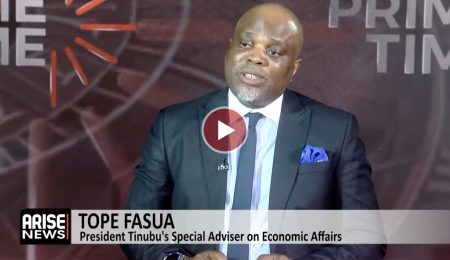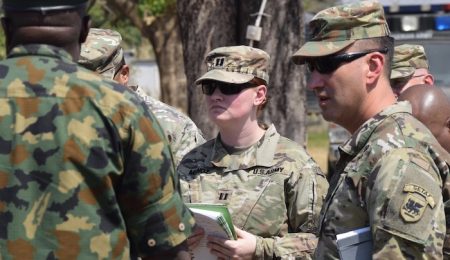The Minister of Finance and Coordinating Minister of the Economy, Mr. Wale Edun revealed on Wednesday, that the federal government has so far disbursed N330 billion to 8.5 million poor households, some of which received at least a tranche of N25,000 as conditional cash transfer
through the National Social Safety Net Coordinating Office (NASSCO).
The social safety net programme for which the World Bank approved $800 million for the Bola Tinubu administration was designed for 15 million poor households at three instalments of N25, 000 each.
Edun, who spoke during a brief chat with journalists in Abuja, disclosed that of the targeted 15 million households, 8.5 million had been paid N25,000 each, adding that while some received one tranche, some got two and others three payments.
The World Bank had in May this year picked holes in the conditional cash transfer programme, arguing that the initiative failed to reach millions of Nigerians in need of urgent economic relief arising from economic reforms, as only 37 per cent of the targeted households had as of then benefited from the scheme.
According to the global development institution, the programme only reached 5.6 million households out of the planned 15 million, two years after the Tinubu administration secured $800 million to run it.
However, Edun explained on Wednesday, that the initial challenges, particularly the linking of beneficiaries’ National Identity Numbers (NIN) to their bank accounts and mobile wallets were being surmounted, adding that the remaining seven million households will be paid before the end of the year.
“So far, 8.5 million households have received at least one tranche of N25,000. Some have received two or three payments. The remaining seven million households will be paid before the end of the year,” the minister said.
Edun disclosed that the cash transfer intervention was part of President Tinubu’s strategy to cushion the effects of economic reforms occasioned by the removal of oil subsidy and exchange rate harmonisation on very vulnerable Nigerians.
The finance minister further explained that about 19.7 million poor and vulnerable households, representing over 70 million individuals were captured in the National Social Register.
Describing the programme as one that is anchored on a “robust and sustainable system,” with beneficiaries verified through their National Identity Number (NIN), and payments made digitally and directly through bank accounts or mobile wallets, he disclosed that the government was planning to incorporate it in annual appropriations in order to make it sustainable.
“We now have the basis for a modern social protection system that can provide targeted assistance to the poorest and most vulnerable on a long-term basis,” he said.
The National Coordinator of NASSCO, Mrs. Funmi Olotu, who gave further insight on the programme, said the payments were staggered because President Tinubu insisted on linking disbursements to NIN in order to guarantee its integrity and transparency.
“No more traditional cash payments. All transfers are direct debit to bank accounts. That is why some households have received one, two, or three tranches already,” she said, adding that the National Social Register, developed in collaboration with the World Bank, was built on over 40 socioeconomic variables and is devoid of political interference.
Data made available by NASSCO indicated that 8.1 million households with a beneficiary coverage rate of 54 per cent was recorded as of August 2025.
A total of 2.2 million new households were added since the last reported cycle in June 2025, a development NASSCO attributed to a “successful BVN/NIN validation.”
Ndubuisi Francis
Follow us on:


